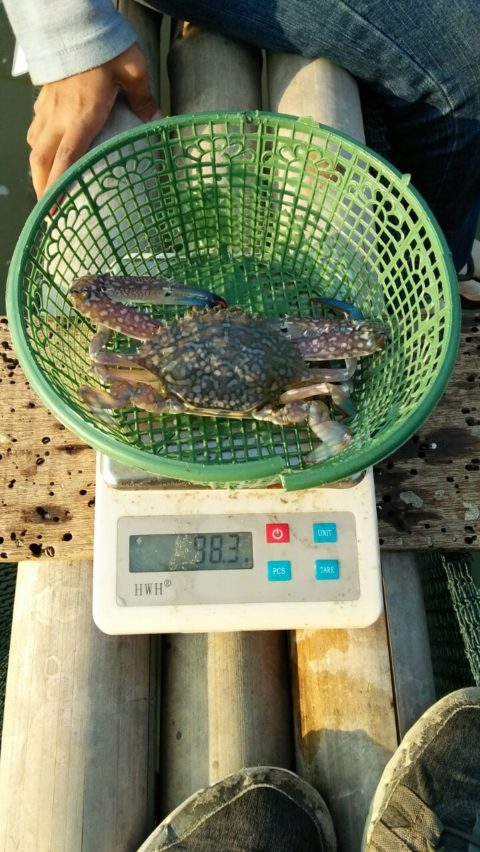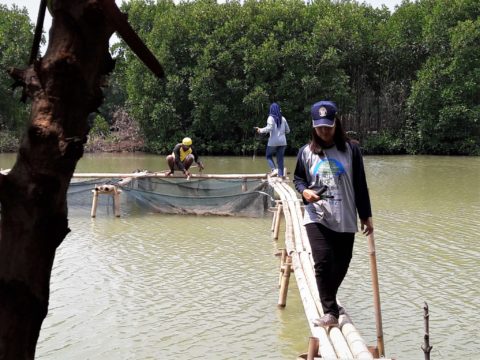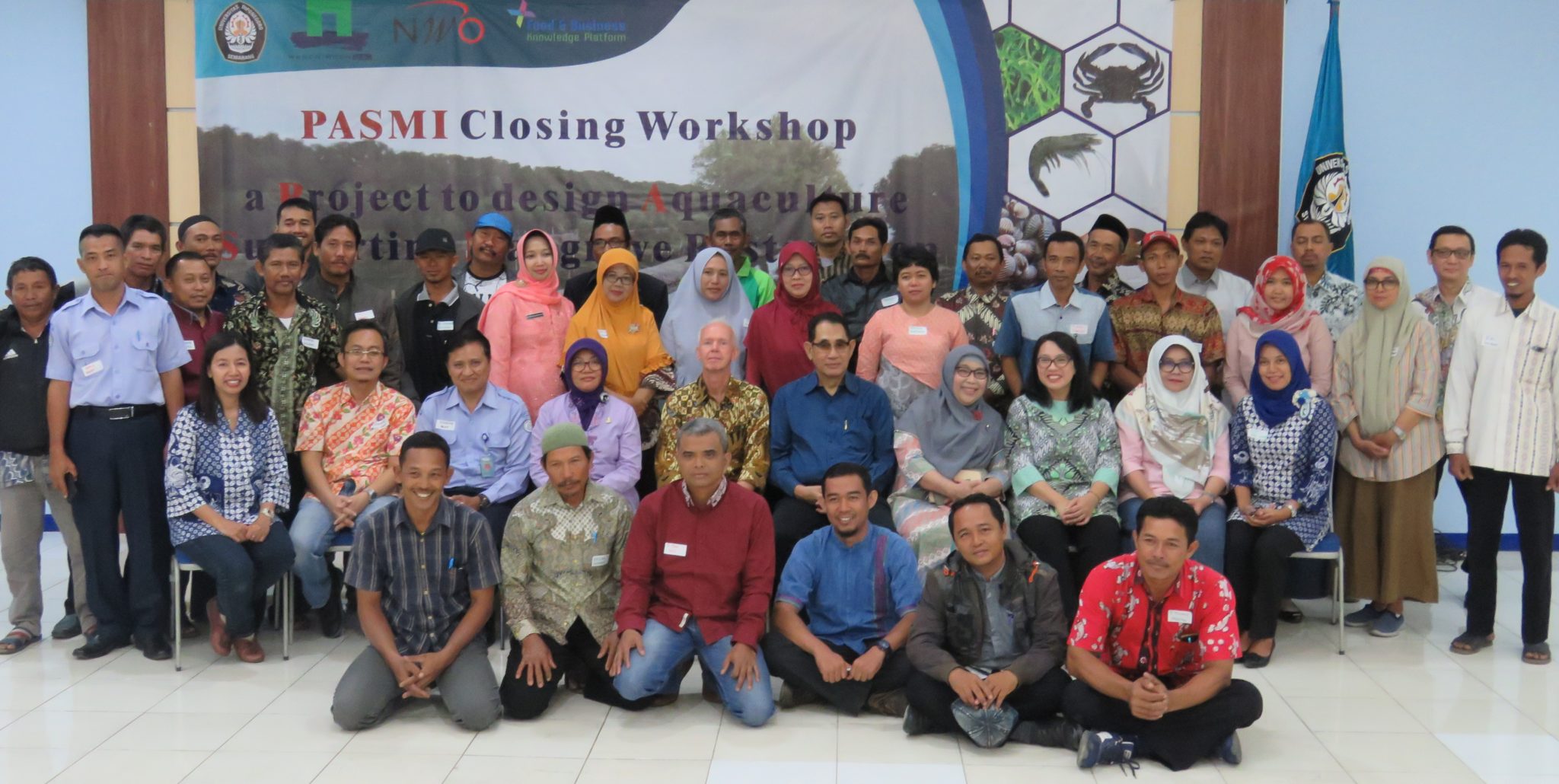
Innovative aquaculture experiment supporting mangrove recovery ready for wider uptake by farmers
-
Aquaculture, fisheries and coastal agriculture
-
Coastal resilience
-
Coastal wetland conservation
-
Integrated delta management
Expanding shrimp aquaculture in South East Asia has been one of the main drivers of mangrove loss in the world. The PASMI project, which supports the Building with Nature project in Indonesia has tested new technologies that can help the transition towards a more sustainable model of aquaculture.
The PASMI project, coordinated by Wageningen University & Research and the University of Diponegoro (UNDIP), designed environmentally friendly alternatives for extensive shrimp culture. Wetlands International and EcoShape which coordinate the Building with Nature Indonesia project in Demak, North Java in Indonesia, are partner in PASMI. In Demak, PASMI specifically analysed the introduction of farming blue swimming crab and integrated multi-trophic aquaculture (IMTA). Some of the tested technologies are ready for wider uptake.

In IMTA systems, different organisms, such as shrimp, seaweed and mussel, are produced in an integrated way. In IMTA, the wastes from one aquatic species becomes input (fertilizers, food) for another. PASMI aims to use the IMTA principle to revive shrimp culture and diversify the aquatic production in order to enhance farmers’ livelihoods. Resilient livelihoods are a condition for safeguarding the mangrove functions for coastal protection.
During the project’s closing workshop on 19 September, the results of PASMI’s experiments and tests were presented. The participants, including the six farmers who practiced IMTA during one season, highly appreciated the results with shrimp, milkfish, seaweed, green mussel and tilapia. The use of feed to fatten the Blue Swimming crab sustainably still has some challenges. PASMI also assessed the constraints to innovations like the once tested, and concluded that these are mainly hampered by conflicting government’s rules, regulations and implementations.
The PASMI team also presented results of their assessment of the Coastal Field Schools (CFS). In Demak, farmers are trained through CFS to learn, test and implement best aquaculture practices to improve yields while reducing cost in an ecologically sound way. The CFS are part of the Building with Nature project in Demak which aims to reduce coastal erosion through mangrove recovery to protect 70.000 people through natural mangrove recovery. To make space for mangrove restoration, the project works with villagers to move ponds at the shoreline backwards. Traditional farmers who were trained in CFS have more than tripled their shrimp yields and doubled their margins. Such improvements are expected to increase farmers willingness to restore mangrove.

Since the return of investment of the training of the new technologies in CFS is high, they can be spread and expanded further through innovation platforms as a post-field-school activity. UNDIP aims to develop a field school approach for Blue Swimming Crab culture, assisted by the Building with Nature Consortium, the seafood processor BSS, and alumni of the UNDIP’s faculty of fisheries.
The PASMI closing workshop, organized by the core PASMI team of Wageningen University and Diponegoro University (UNDIP), was attended by over 20 farmers, two researchers of BBPBAP-Jepara, and several representatives from the provincial ministry of Marine-Affairs and Fisheries (KKP), feed and processing industry, Building with Nature partners and UNDIP.

